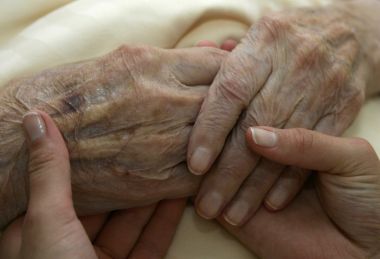Anti-ageing drugs: Why no-one should want to live forever
Diseases such as Alzheimer's and Parkinson's could be consigned to a distant memory.

That is one of many strap lines surrounding the announcement that the world's first anti-ageing drug will be tested on humans next year. Researchers believe that it will be possible to stop people growing old as quickly so a person in their 70s will be as biologically healthy as a 50-year-old.
"It could usher in a new era of 'geroscience' where doctors would no longer fight individual conditions like cancer, diabetes and dementia, but instead treat the underlying mechanism – ageing," according to Sarah Knapton, the Telegraph's science editor.
The news that ageing may not be an inevitable part of life will be music to many middle-aged ears. Many elderly people will, ironically, wish themselves a few years younger to be in time for the introduction of such a drug, should it ever make it onto the market.
The excitement surrounding the prospect of an anti-ageing drug is intriguing. Behind the desire for smooth skin and a healthy heart points to the human desire for eternity. It is intriguing that despite an increasing denial of the existence of God and genuine eternity, we still crave pseudo-eternity in the form of 20 more years on earth.
However irreligious the west is becoming, we will always fear death. It is notable when someone dies how many people suddenly believe in some form of afterlife. Well-wishers will write "see you on the other side," or "see you when we get there," on cards, despite previously showing no interest in the prospect of heaven.
The fear of pain and death and the craving for eternity is a perfectly understanding part of human nature.
But what is tragic is the complete misunderstanding of what eternity means and the way to achieve it. Death and pain are not things to be overcome. Neither are they aspects of life to be feared.
The Christian doctrine of creation is that we were created out of dust and have the same vulnerability as the rest of creation. Our lives are "like grass," Psalm 103 says. "The wind blows over it and it is gone, and its place remembers it no more." The process of death is part of who we were created to be.
God could have chosen to create us as strong, immortal and indestructible beings. But He didn't. He created us to be frail and mortal.
The other reason we love the sound of an anti-ageing drug is the fear of becoming a burden. But again this is a fallacy. As John Wyatt wrote on this site, "dependence is not an alien, subhuman and shameful condition. It is part of the narrative of every human life."
We were born into this world weak, frail and utterly dependent on others for our survival. We could do nothing for ourselves. We then have a period of strength and supporting others but we exit the world, often similarly dependent and incapable. It is a natural and healthy part of life to be dependent on others.
So vulnerability and death is part of who we were created to be. We are not designed to live forever in our earthly bodies.
The final tragedy of this hullabaloo around "anti-ageing" is that it is a distortion of what real eternity looks like. The promise of the eradication of Alzheimer's twists our desire for everlasting life and makes it as insignificant as living to 120. It is a marring of something beautiful.
In reality eternity is the prospect of pure joy and bliss with our heavenly Father. It is like a book which goes on forever where every chapter is better than the one before, as CS Lewis described. It is everlasting life in constant peace, happiness and love. Much better than feeling 20 years younger.











